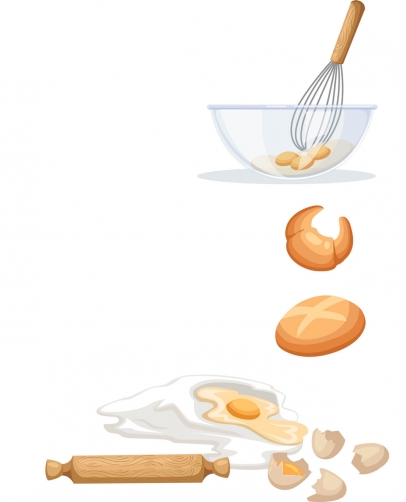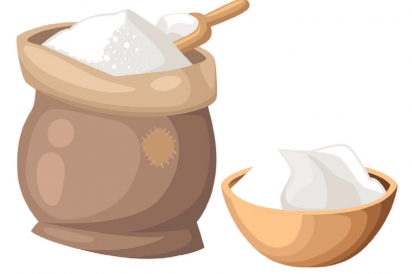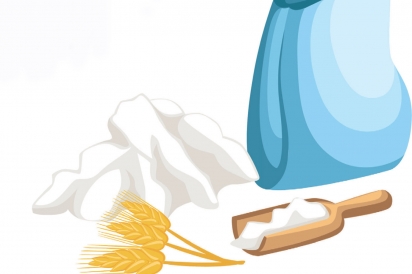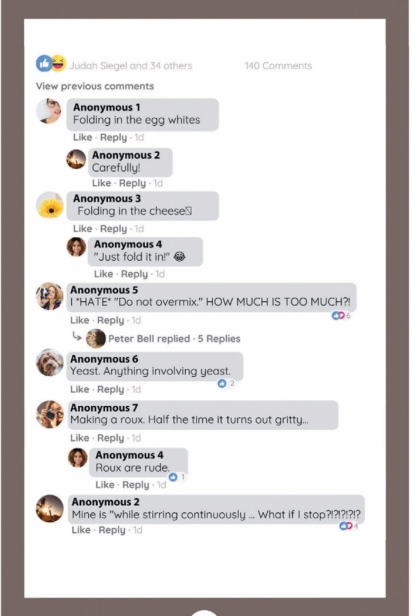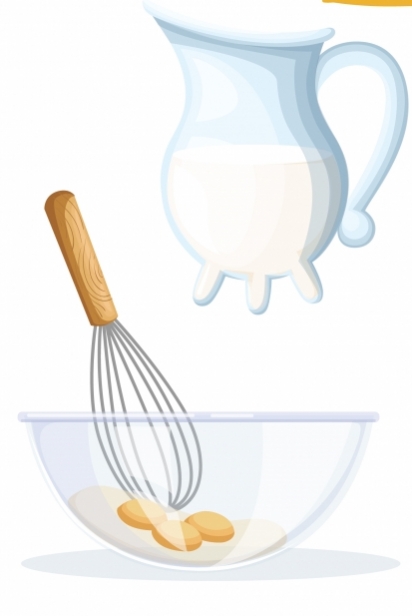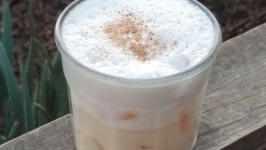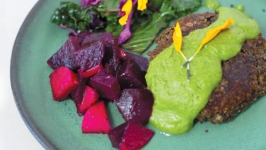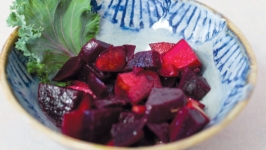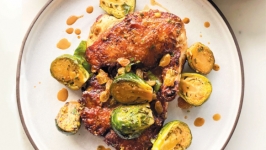Pasta Tense
Dad’s Spaghetti and Other Stress-Inducing Recipes
In a recent social media post on stress-inducing recipe instructions, one of the commenters wrote, about cooking, “I don’t like relying on my own judgement.” Sound familiar? Or perhaps you know someone who hesitates to put on an apron because they know that the result is going to be a public exhibition of their wisdom, experience and improv skills. But what if there is more to cooking than just the plated dish?
My kids prefer my husband’s spaghetti to my own. As chief resident chef in our home, I’ve accepted this fact. Mind you, I’ve been cooking (and baking) for over 20 years. I can make a darn good spaghetti sauce. I can make it with all of the same ingredients as my dear hubby (DH), even add it all in the same order, but his version remains the family favorite. He’s been cooking— loosely—for about five years. He hasn’t put his sauce recipe to paper yet, and even if he did, I doubt I would be able to match the taste, texture or accolades received.
So, what’s the secret to recipe success? According to chef Jacques Pépin during his 2016 interview on “PBS NewsHour,” “When writing a recipe, one records a moment in time which can never be duplicated exactly again…. A recipe is a teaching tool, a guide, a point of departure.” Cooking is subjective, at best, and recipes originate from a unique set of circumstances that are nigh impossible to reproduce.
Think about it: Even basic ingredients such as eggs and fats vary in size, quality and weight. For instance, do you use the exact same brand of butter as the original cook? This one simple ingredient has key factors to consider: butterfat and water percentages, salt content, European-style, American-style. Each of these elements will influence the outcome of a recipe, sometimes significantly.
And what about the pots and pans? Cast-iron and stainless-steel pots cook foods at incredibly different degrees (pun intended). Glass pans, dark metal pans and light metal pans will all provide slightly different outcomes due to the way the pans interact with the food being cooked.
Temperature regulation not only depends on the vessel, but also on your current altitude. Did you know that foods take longer to cook in higher altitudes? The air pressure is lower, so water boils at a lower temperature and evaporates more quickly. Because of this, you will likely need to lengthen your cook times.
Does your stovetop have the same BTU rating as the one used when the recipe was created? On my own stovetop, I only boil water on my front left burner, the power burner. And since the BTUs are the lowest on the back right burner, this is the one I use to keep sauces warming on low. If I switched to an electric range, there would be a big learning curve in recipe adaptations. These factors barely skim the surface of the mysteries and frustrations of the kitchen-laboratory.
Recently I came across a post on social media asking the question, “What’s your most stress-inducing recipe direction?” The resulting 140 comments included hilariously relatable topics, not limited to:
Let’s face it, there are some foods that you might never attempt to make because the outcome is known for having only a 50/50 chance of turning out edible. Souffle, hollandaise, caramel, mole sauce, beef Wellington, bread. And then there is that one recipe you definitely won’t attempt because your brownies will never turn out like Gramma’s.
Then, is it best to leave the experts to their work, to stick to what you know? Doubtful.
Like Chef Pépin mentioned in his interview, a recipe is designed as a starting place. In fact, he says of one of his own creations, “If the recipe had been followed to the letter, the finished dish would have been a disaster.”
This comment came after his attempt to re-create a pear dish using Bosc pears instead of the original variety. Chef Pépin had to adjust, modify, consider and improvise. He is a seasoned chef, and the improvisation is instinctual. But if the instinct comes from being seasoned, perhaps seasoning comes from practice.
Here’s more food for thought: Current studies on culinary therapy are looking into the positive impact of cooking on one’s mental health. A 2019 Southern Living blog says it best: Cooking is “a bit like meditation, but with tastier output.” In addition, cooking and baking are so often an expression of love and service to those being fed.
I was once asked what my favorite food is, and my answer was, “Anything I didn’t have to make myself.” I love seeing DH experiment in the kitchen, even if the result is not what he envisioned.
My best advice? Let your kitchen be a laboratory of love, and embrace the process of experimentation.


